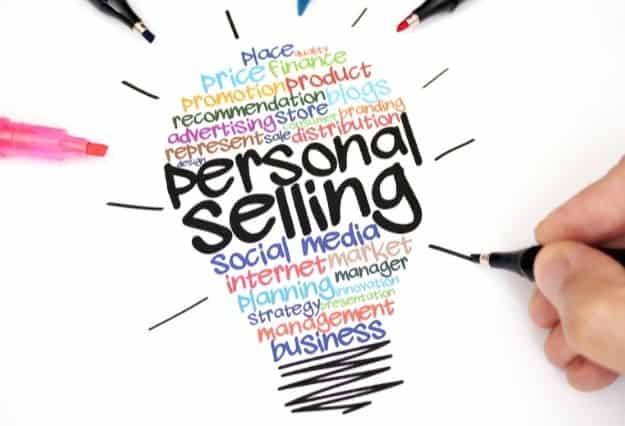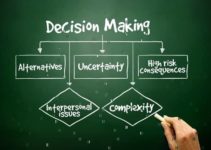Challenges in Personal Selling
Personal selling involves face-to-face contact with a customer. There is a direct interaction between the buyer and the seller. In this two-way communication, the seller can identify the specific needs and problems of the buyer and tailor the sales presentation in light of this knowledge. But the audience with the customer should be considered more important than merely an opportunity to make a sale.
What is Personal Selling?
The salesperson should consider it as a huge opportunity to develop personal equations with the buyer and cement a relationship with him. Quite a few buyers buy from a company primarily because they like the salesperson of the company.
The salesperson should use this opportunity to get a thorough knowledge of the requirements of the buyer and his prime motivations when he makes a purchase decision.
The face-to-face interaction with a customer should also be used to establish the credentials of the company.
Challenges in Personal Selling
The salesperson has to convince the buyer by his demeanor and presentations that the salesperson’s company is a safe bet. The interaction should have reduced the risks that the buyer feels he is taking when he is buying a product.
1. The face-to-face interaction between a seller and a buyer
The face-to-face interaction between a seller and a buyer is very flexible but the flexibility comes at a cost. Salespersons run huge bills besides their salaries. In industrial marketing, 70 % of the marketing budget is spent on the sales force.
This is due to the technical nature of products and he needs to maintain the close personal relationship between the selling and the buying organization.
2. A sale on average takes six visits
A sale on average takes six visits but good salespersons visit their clients even when they know that the client is not going to buy in the near future. Maintaining relationships with clients between their purchases is as important as the interaction that takes place when the salesperson is trying to sell.
A salesperson learns of the impending purchases of the buyer and is likely to be considered favorably by the buyer when the salesperson maintains a relationship with him.
3. The nature of the personal selling function
The nature of the personal selling function is changing. Firms are reducing the size of their sales force due to greater buyer concentration, moving towards centralized buying, and high costs of field soles team.
Salespersons are equipped with the latest IT gadgets and they are expected to be in constant interaction worth both their clients and their own sales headquarters.
While technology has reduced their latitude to take independent decisions in the field, their knowledge about the inventory levels, and availability, production plans, prices of the products they are selling have enhanced their credibility with buyers.
Therefore before agreeing to supply an item by a particular dote, the salesperson can check the inventory levels or the production plans on his laptop. Salespersons are also expected to increase their efficiency in terms of being able to generate more revenues per salesperson because of availability of the telecommunication gadgets and foster modes of transport.
4. More and more companies are collecting purchase requests
More and more companies are collecting purchase requests from their departments and divisions and are buying from central locations. The concentration of buying power into fewer hands has increased the importance of relationship management through key account soles teams who service the accounts of major buyers.
Since it is fatal to lose these accounts, salespersons have to be sensitive and responsive to the requirement of these buyers. The centralized buying teams of the buyer company is packed with specialists who have their own vocabulary. It is important that the sales team have specialists who can converse meaningfully with the specialists of the buyer team.
The specialists of the two teams should also develop mutually beneficial relationships among themselves and update each other on the latest developments in their fields. A big change in attitude is required. The sales team has to eschew its fixation of making a sole. The buyers and the seller’s team have to collaborate to find a solution to the buyer’s problem.
5. Few salespeople sell products that are clearly superior
Few salespeople sell products that are clearly superior to the competitors on most criteria. Salespeople need to capitalize on what advantage their products have over similar competitive offerings.
Under such conditions of product parity, salespersons who understand the requirements of their buyers better will exaggerate the benefits that the buyer requires and win on order. The relationship that the salesperson has developed and maintained with the buyer will hold him in a good lead when his product is not superior to his competitors’.
6. As buyer needs are becoming more complex
As buyer needs are becoming more complex, salespeople need to be able to produce a package of products and services to provide a solution. Buyers do not want to buy many sub-components from many suppliers and then assemble these themselves. They want their suppliers to do this job. They want total solutions to their needs.
Sales teams need to spend a lot of time on the premise of the buyers to understand and appreciate their requirements. The sales team should also be conversant with the technologies and systems of the buyer to be able to suggest a solution to his needs.
7. Industrial buyers are experts in their area of operations
Industrial buyers are experts in their area of operations and are very clear about what they are looking for in the product. Their choice criteria are clear and precise. Customers in the consumer market are also developing clarity and precision in their choice criteria.
Customers are technology savvy, are linked to other customers who might have used the product, and are generally more willing to consider alternative solutions to their needs.
Salespeople have to develop the ability to sell to more educated buyers who take more care to shop around and make diligent efforts to understand product features, benefits, options, prices, etc.
Salespeople should be able to communicate with these more knowledgeable customers who will ask difficult questions and who will unabashedly compare the salesperson’s product with those of his competitors.
8. As product technologies mature, most products are satisfying
As product technologies mature, most products are satisfying the obvious needs of customers i.e. refrigerator is keeping the food cold and an air conditioner cools the room. But there are still many unexpressed needs that irritate a customer.
Salespersons will be able to unearth such needs by observing the customer in his own surrounding and talking to him at a stretch.
The salesperson’s first task thus becomes to find out the problem that the customer may be encountering and then design a solution to the problem in consultation with the customer. The salesperson has to learn the art of consultative selling.
He needs to work with customers to discover his needs and work out an acceptable solution.
9. It is difficult for a single salesperson to sell
It is difficult for a single salesperson to sell to industrial customers. Their problems are complex and are of technical nature and the solution requires inputs from specialists.
There is an urgent requirement to manage a team selling approach, particularly with complex sales teams selling involving not only salespeople but also product and financial experts, marketing and service staff. Such an approach will be required to provide confidence to the customer that the team is competent enough to handle their problem.
10. It is imperative that the salesperson develop the ability
It is imperative that the salesperson develop the ability to know the customer’s business. Selling will require in-depth knowledge of customers’ business and the capability to build relationships. Accurate marketing information will be needed to provide each customer with the best possible service.
Besides developing insight about customer’s technology, systems, and processes, salespersons should learn to empathize with customer requirements and problems
It is also important that the salesperson understands the capabilities of their own company and knows its resource people well so that he can suggest suitable solutions to the company’s problems.
11. When there are no substantial differences
When there are no substantial differences between the product of the salesperson and those of his competitors, the ability to provide services to the customer will clinch the deal for him. The salesperson may offer to install the equipment or provide maintenance service.
The capability to add value through service will become increasingly important. Suppliers will be required to provide such services as business consultants and ongoing product support to create and retain customers.





